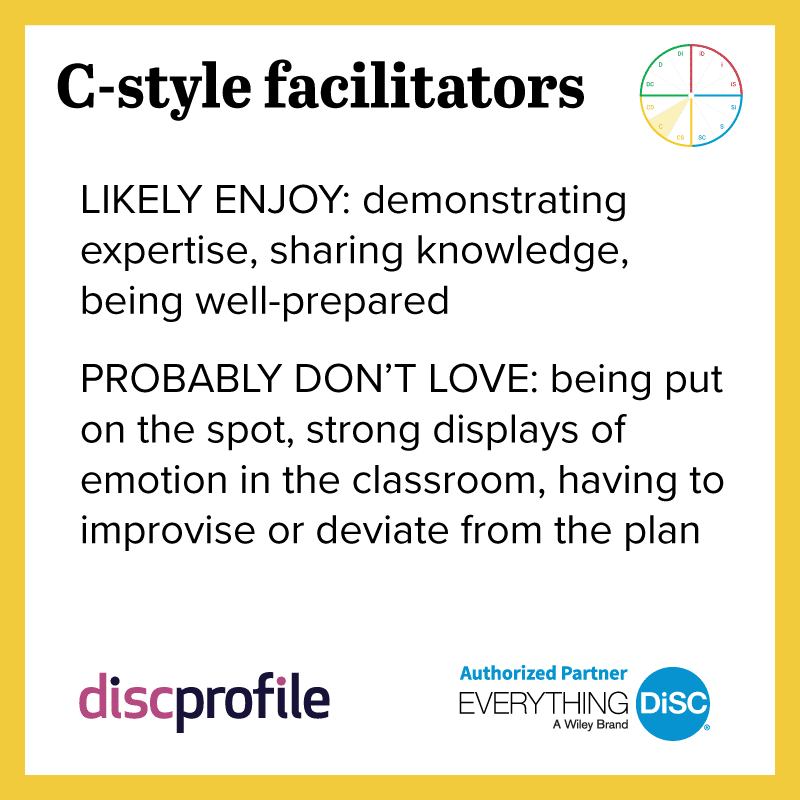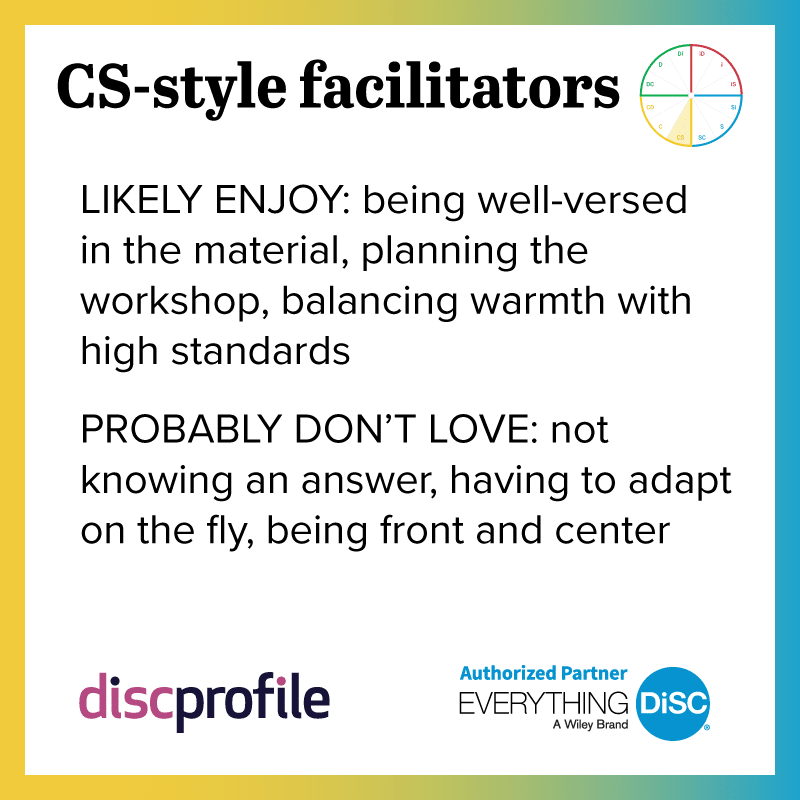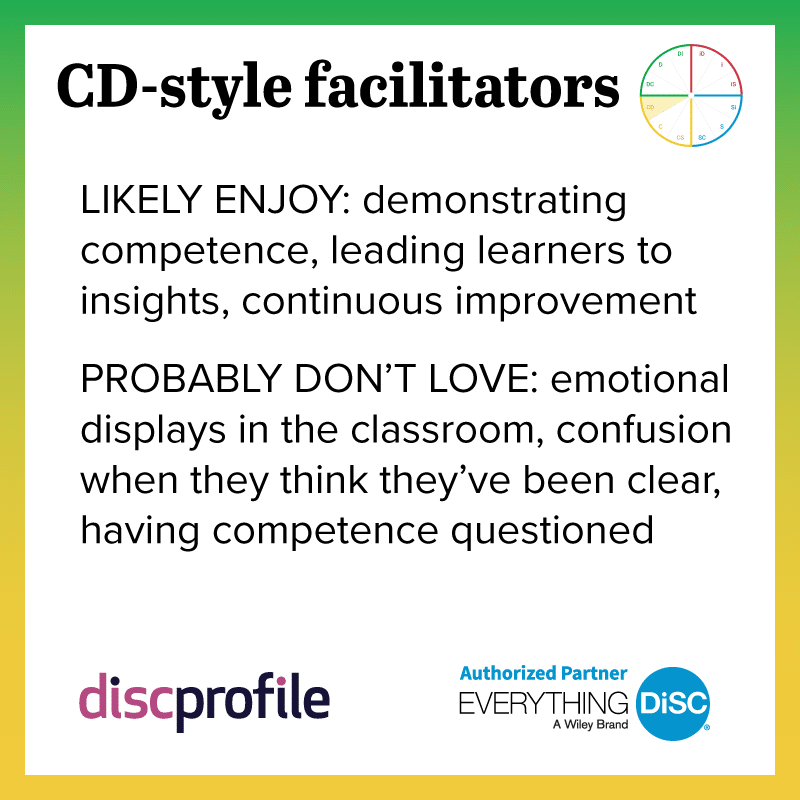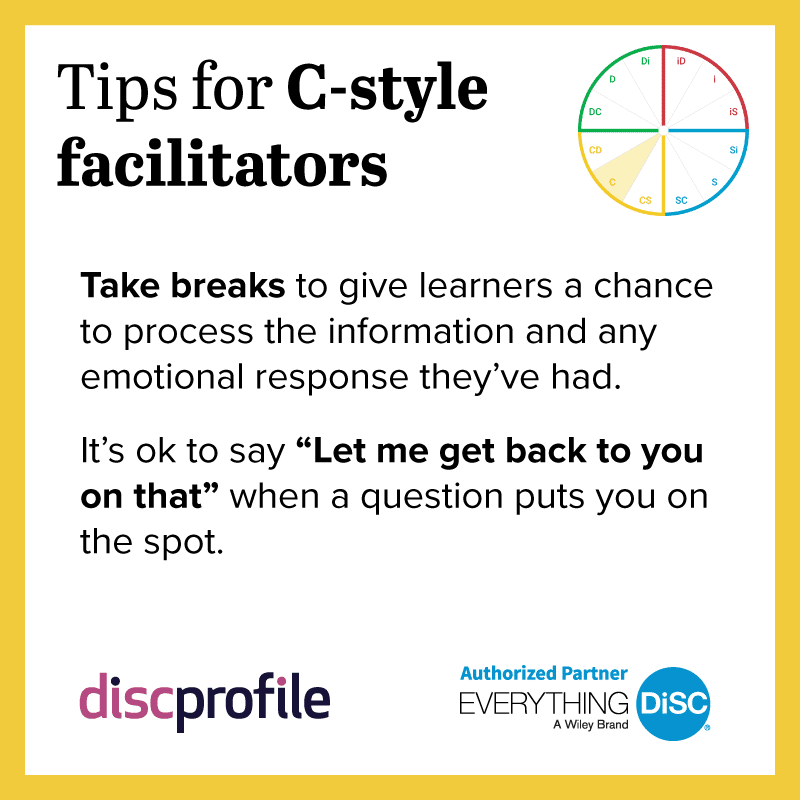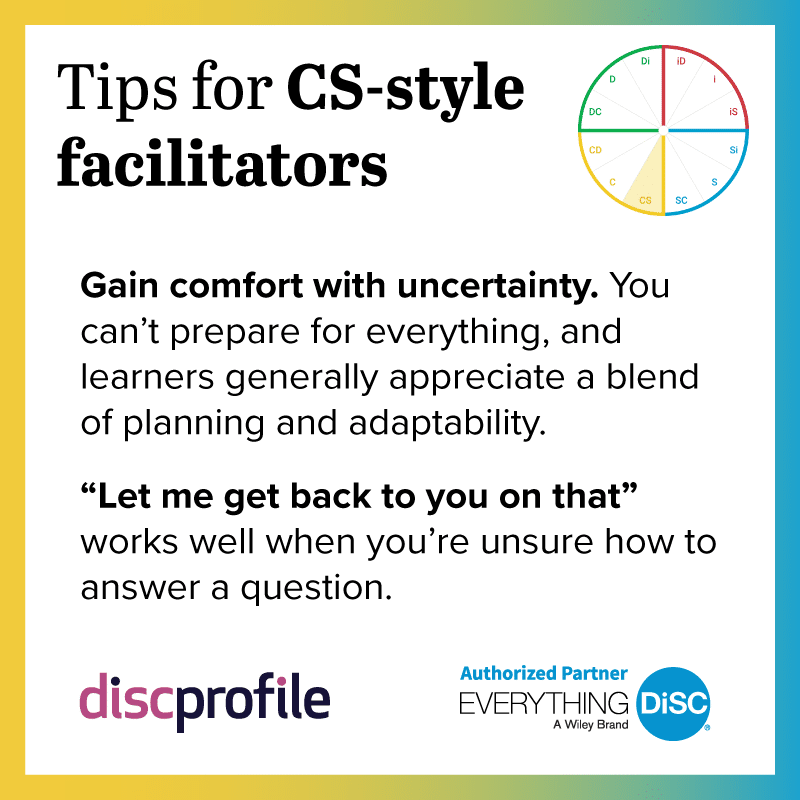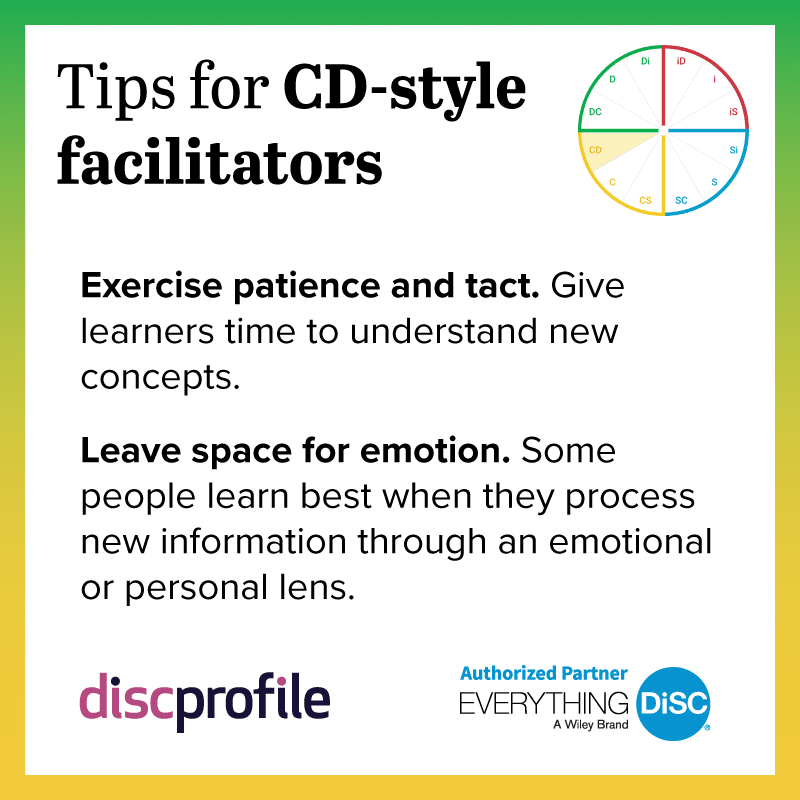How does your DiSC® style inform your facilitation style? Understanding the facilitation tendencies of your personality type can help reveal blind spots in your approach to leading workshops. Preparing a training session is not just about assembling the content—it’s also about knowing your own motivations and stressors and having a plan for the most effective delivery.
When facilitating, your DiSC style can show up in your pace, energy level, amount of structure, how many details you share, and how you lead discussions or activities. If you’re a facilitator with a C-type personality, you likely really know your stuff. Competency is important to you, so you put in the work to develop expertise on your subject and make sure you’re thoroughly prepared for training sessions. You aren’t afraid of tough questions from the group, because you know your command of the subject is more than surface level. You enjoy learning and passing your knowledge on through instruction.
Your C style as a facilitator
As a C-style facilitator, you probably enjoy:
- demonstrating your expertise
- instructing others on a subject you know well
- being well prepared and well informed
You may not love:
- being put on the spot with a question you don’t feel prepared to address
- managing strong displays of emotion in the classroom
- having to improvise or deviate from the plan you put together
Tips for C-style facilitators
- Take a break. If learners are zoning out or emotions are running high, suggest an impromptu break. This gives learners a chance to process both the information you’ve shared and any emotional response they’re experienced.
- It’s OK to say “Let me get back to you on that” when a question puts you on the spot. Doing so opens the door for ongoing conversations and allows you to demonstrate vulnerability and honesty, a benefit to the workshop dynamic.
Your CD style as a facilitator
As a CD-style facilitator, you probably enjoy:
- demonstrating your expertise and competence
- leading learners to powerful insights
- assessing the success of each training you lead and using this information to plan the next for even greater impact
You may not love:
- emotional displays in the classroom
- when learners misunderstand something you believe you’ve been clear about
- when you feel your authority or competence is being questioned
Tips for CD-style facilitators
- Exercise patience and tact. Because you know your subject so well, it can be hard to remember what it is like to hear it for the first time. Give learners time to understand the concepts and gently correct any misunderstandings they have.
- Leave space for emotion. Some people process new information through an emotional or personal lens. You probably have a more objective approach. You don’t have to become emotional yourself in order to show others gratitude for the emotions they share in the classroom. If emotional learners can express themselves, rather than feeling shamed or stifled, they may better absorb and retain the material.
Your CS style as a facilitator
As a CS-style facilitator, you probably enjoy:
- ensuring you’re well-versed in the material
- planning out your workshop and readying contingency plans
- balancing an approachable, supportive manner with high standards for your learners
You probably don’t love:
- not knowing the answer to a question
- having to improvise or adapt on the fly
- being front and center in a workshop
Tips for CS-style facilitators
- Work on being more comfortable with uncertainty. Learners generally appreciate a blend of planning and adaptability, so don’t dwell on the impossibility of preparing for every incident. Cut yourself some slack and embrace in-the-moment adjustments as a natural part of learning environments.
- “Let me get back to you on that” and similar phrases can help when you’re unsure how to answer a question. Setting aside time to come back to questions helps you stay on track and gives you time to prepare your answers to tough questions.
A quick review: your DiSC type and facilitation
As you think about your strengths and challenges in facilitation settings, it’s helpful to review your Everything DiSC® profiles. Specifically, take a look at these sections:
- Everything DiSC Workplace: “Workplace > What drives you” on the Catalyst platform; “Motivators & Stressors” (page 6) and “Taking Action” (page 16) in the traditional Workplace profile.
- Everything DiSC Management: “Management > Your management style” on Catalyst; “Your Management Preferences” (page 6) in the traditional Management profile.
Jot down a few notes about what resonates with you, and any ideas you’d like to test out. As you prepare content for your next training, think about how you can prepare your mindset as well, with special attention to the notes you made and the tips above.
There is no single DiSC style that is best for facilitators to have. People of all styles can excel at facilitation, especially if they take the time to identify their blind spots and do a little self-reflection.


